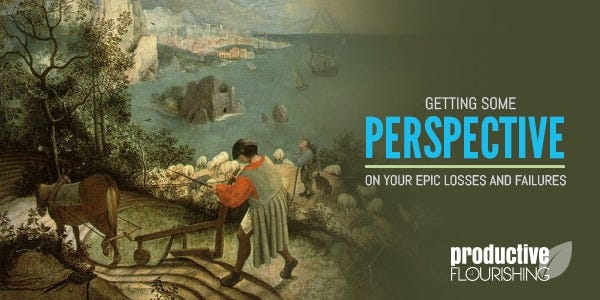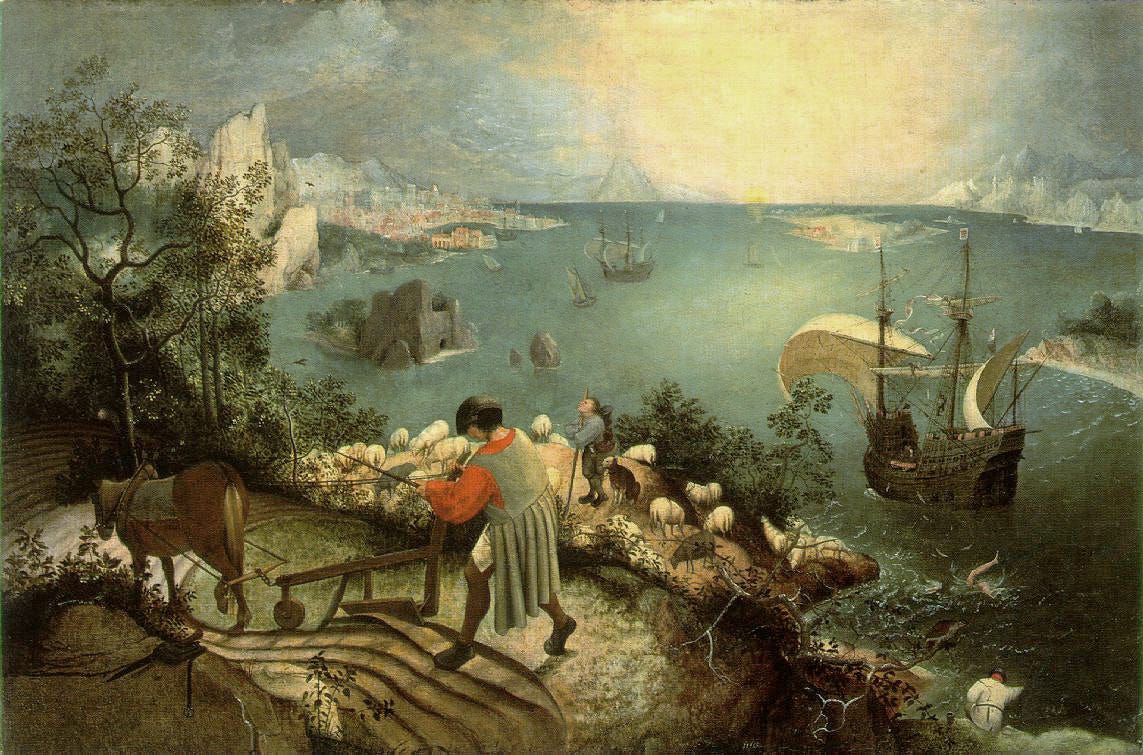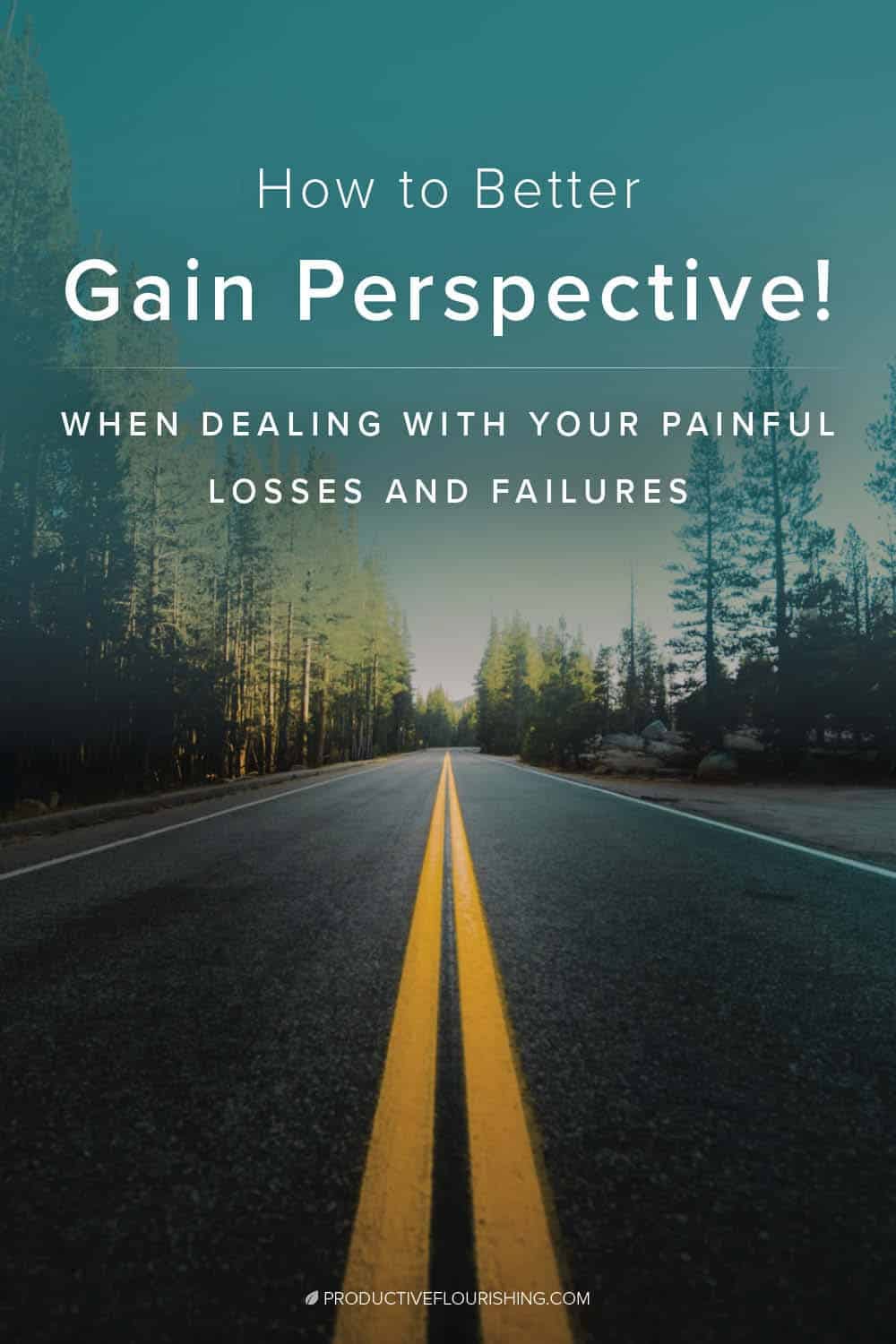Getting Some Perspective On Your Epic Losses and Failures

Editor's Note: This is a guest post by Cath Duncan of Creative Grief Studio and Remembering For Good. I know this is the season when we're all supposed to be jolly, but for many people who've lost a loved one or whose business is failing, this is the toughest time of the year. Since we talk about life AND business here - however they show up - I'm happy to feature Cath's post.
At the age of 16, I loved to paint but the theory of art and the brownish paintings with plump women and angels that our classes focused on most of the time held absolutely no appeal. But there was one particular painting that we learned about that made a huge impact on me.
Our teacher didn't tell us the name of the painting. Instead she just asked us to look at it and share what we thought the painting was about. "Ugh. Just another boring landscape with a peasant, a donkey, a ship in the sea… it's mundane." I didn't see any deeper meaning or interesting significance, epic story or rich emotional expression in the painting. It just seemed really dull.
Here's the painting...

My classmates came to pretty much the same conclusion. We all thought it was kind of naff and dull and were looking forward to moving onto the genres like surrealism, dadaism, cubism, expressionism and others where the subject matter had rich layers of meaning and the artists seemed much more quirky and interesting.
Boy were we surprised when we were asked to find Icarus and our teacher explained the real meaning of the painting!
Originally believed to be painted by Pieter Breugel, the painting is called "Landscape With Fall of Icarus." If you look closely, you'll be able to see a pair of legs splashing in the sea, just below the ship. This is Icarus, the boy who, in Greek mythology, ignored his father's warnings and flew too close to the sun with his wings that he'd made out of wax and feathers. The wax melted and he plunged to his death in the ocean. He was an epic, brave (or crazy) hero who died in a pretty epic, dramatic way.
The poet, William Carlos Williams, wrote a poem about the meaning of this painting:
According to Brueghel when Icarus fell it was spring a farmer was ploughing his field the whole pageantry of the year was awake tingling near the edge of the sea concerned with itself sweating in the sun that melted the wings' wax unsignificantly off the coast there was a splash quite unnoticed this was Icarus drowning - William Carlos Williams
The juxtaposition of Icarus' epic, tragic story against the mundane ordinary landscape with people that are oblivious to the importance of Icarus' fall and getting on with the mundane, ordinary tasks of the day is such a poignant representation of what's it's like to experience failure, loss and grief. When your dream business fails or you lose a loved one, it's the biggest, most epic thing in the world for you. It's hard to understand how the rest of the world continues, so oblivious to your pain and the significance of your loss. PRODUCTIVE FLOURISHING The pain grinds your world to a halt but the rest of the world around you keeps spinning so fast, everyone still doing what they were doing before that dreadful moment. You're absorbed with thinking about the deep mysteries of that gap between income and no income, heartbeat and no-heartbeat. The widest gaps in the world. And yet everyone else continues, focused on the little, mundane, meaningless and seemingly insignificant details of life, as though that's all that matters.
At first this feels like a huge disconnect and you feel so alone with your tragedy. But as time continues to pass, you find yourself remembering how you used to wonder how you'd ever be able to "go on." And you realize that even though a part of you felt like it stopped forever that day, life did go on. The ordinary, mundane, "going on with life" has become a comforting source of reassurance, rather than a source of disconnection and loneliness.
You come out of your cocoon and reach out to others who appear to be just "going on" with the ordinary, mundane things in life and you discover that the reason they didn't stop to acknowledge your Icarus falling is because they're watching their own Icarus' fall in some area of their lives. They're experiencing their own epic loss. And you realize that you're not alone in failure and loss. Even though it's the biggest thing that's ever happened to you and it's completely rocked your world, your love and your loss aren't extraordinary. Loving, dreaming, failing, losing and grieving are universal, common experiences. Ordinary, everyday experiences. Mundane. This is what it is to be human.
As you try to make sense of it all, you wonder, "Which is it? Is my story of failure and loss epic or mundane?"
Like most of the things that make life a rich, human experience, it's both.
Because it's epic, your story is worth treasuring, savouring, remembering and telling. (Click to tweet - thanks!) It may even be worth basing a new business and body of work on.
And because it's mundane, you can rest assured that you're not alone, you're not the first person to love and lose, or to dream and fail. We have each other, life will go on, and you'll be okay.


